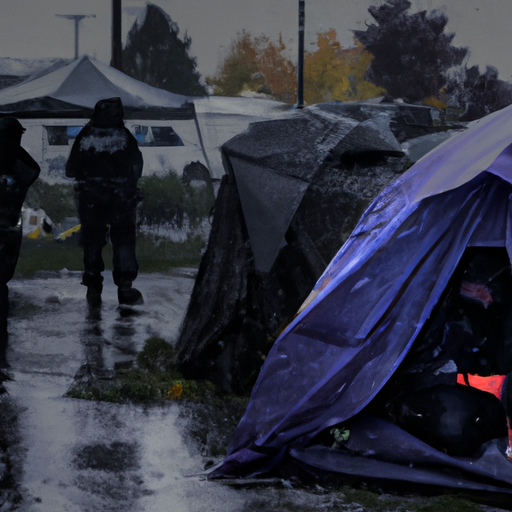The Canadian Opioid Crisis: A Deep Dive into the Impact and Efforts to Combat the Issues
The burgeoning opioid crisis has emerged as a significant challenge for Canada, particularly in Ontario and nearby localities. A recent development reported by Orillia Matters provides an insight into the local response to this crisis – whether that is dealing with housing issues, acting against encampments or arming local police with life-saving naloxone kits.
The Ongoing Effects of the Opioid Crisis
The opioid epidemic tearing through various parts of Canada has left in its wake a trail of destruction and heartbreak. These effects are varied and interconnected, reaching far beyond the individual user to entire communities, including Ontario:
- Homelessness: The opioid crisis has contributed to an increase in homelessness as chronic substance abuse issues prevent individuals from maintaining stable housing.
- Criminal activities: Areas struggling with high rates of opioid abuse often see an upsurge in crime rates – including drug trafficking, petty theft and more severe crimes – in an indirect consequence of drug dependence.
- Health impacts: Beyond the immediate risk of overdose, long-term opioid use can lead to severe health complications. There’s also an increase in the transmission of infectious diseases linked to intravenous drug use.
- Social impact: The social fabric of communities dealing with widespread opioid addiction may be eroded, creating a challenging environment for social revitalization efforts.
Efforts to Combat the Opioid Crisis
In response to this far-reaching crisis, provincial and local governments, law enforcement agencies, healthcare providers and non-profit organizations across Canada have implemented a variety of strategies.
Opioid Class Action and the Canadian Opioid Abatement Class Action
The court system has also responded to the crisis by approving a national Canadian opioid abatement class action lawsuit. This seeks to hold pharmaceutical companies accountable for their role in the crisis. Such court action represents a significant step in the right direction, although it doesn’t solve the immediate challenges at the community level.
Housing Initiatives
Homelessness as a result of opioid abuse has prompted local governments to increase their housing support. For instance, the City of Orillia has committed to providing temporary housing for these individuals. However, the complexity of opioid addiction necessitates more comprehensive interventions that address the root causes and facilitate recovery.
The Use of Naloxone
One life-saving initiative in response to the overdose crisis is the provision of naloxone. Naloxone can quickly reverse the effects of an opioid overdose, potentially saving lives. Police in many jurisdictions, including Orillia, now carry naloxone kits as a critical line of defense against fatal overdoses.
Encampment Regulation
As towns grapple with an increase in drug-related homelessness and encampments, officials seek bylaw amendments to manage these challenges, balancing the need to maintain public safety and order with a compassionate approach towards affected individuals.
Conclusion
The Canadian opioid crisis extends beyond an individual health issue to pose diverse societal challenges such as homelessness, increased crime rates and community instability. While opioid class actions, housing initiatives, naloxone provision and encampment regulation represent steps towards managing the crisis, there still remains an urgent need for comprehensive strategies. These should focus on preventative measures, access to high-quality treatment, and the rebuilding and revitalization of affected communities. As civic and community leaders, the call to face the crisis head-on, prioritizing the health and well-being of Canadians vulnerable to the impacts of the opioid crisis, is more critical than ever.
